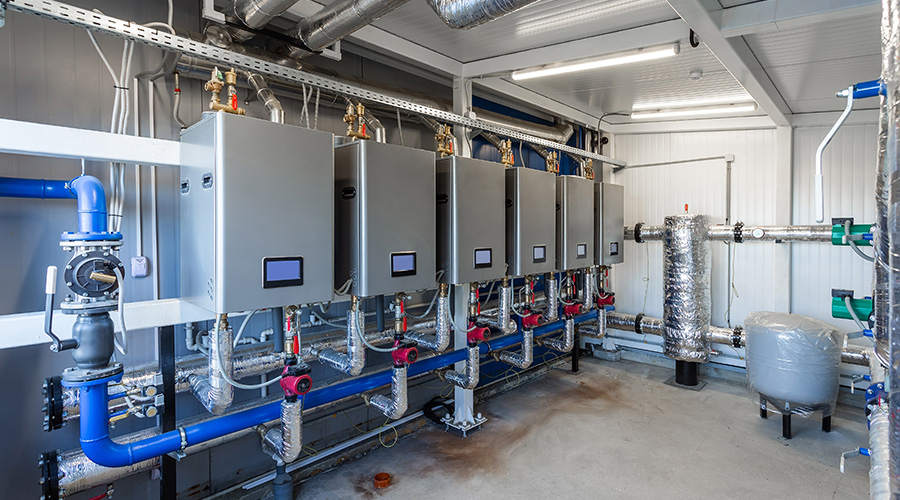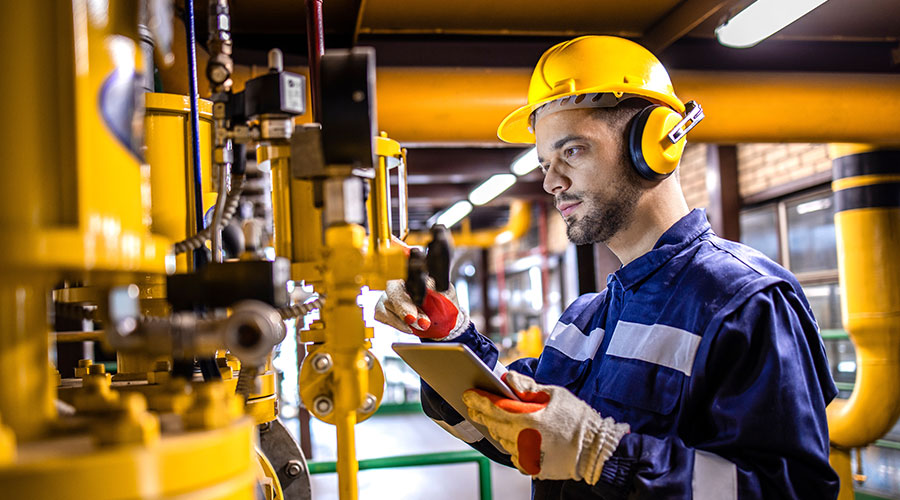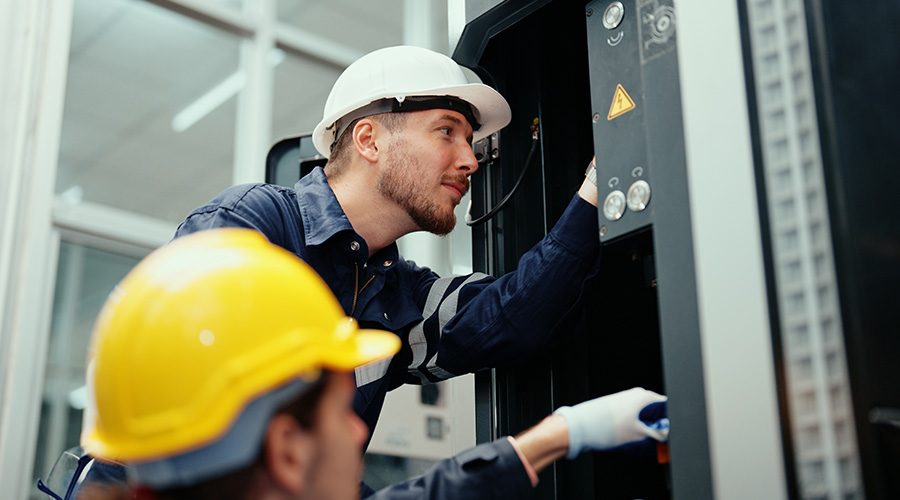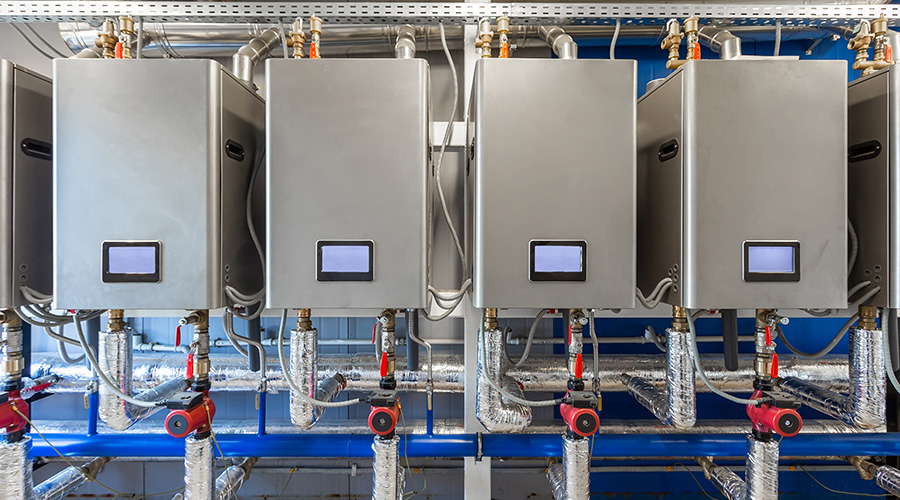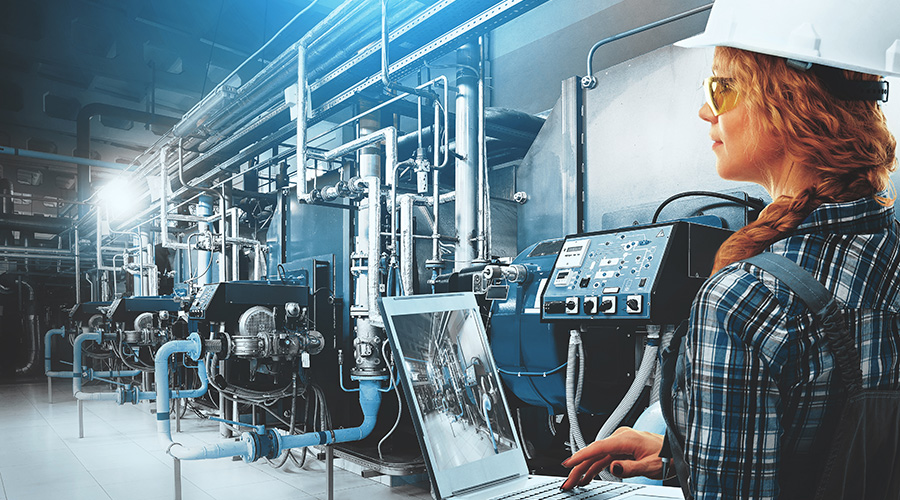6 Sustainable Benefits of Steam Boilers
Improved technologies help transition equipment for environmentally friendly applications.
By Frank Rigas, Contributing Writer
What do a condensing boiler in an institutional and commercial facility and a Formula 1 race car have in common? At first glance, most people probably would say nothing.
But a closer look by a maintenance and engineering manager would unearth at least one similarity: The hot water-generating vessel and the high-speed vehicle are engineered to recover and reuse heat from exhaust gases. This capability makes them more efficient and helps reduce emissions while maintaining performance.
The condensing boiler also converts a higher percentage of fuel into usable heat, which further reduces emissions and energy waste and lowers fuel consumption, says Gary Williams, senior director of sustainability and energy solutions for ESFM, an integrated facilities management firm.
“Modern boilers, especially condensing boilers, can achieve efficiency levels of up to 95 percent,” he says.
Myths and misconceptions
Although boilers are not typically regarded as green technology, the levels of efficiency are among reasons hot water and steam boilers used for heating systems are considered environmentally friendly, a trait that often overlooked and one that may dispel some myths.
“One myth that stands out is the claim that steam boilers operated on fuels such as natural gas are unfriendly to the environment,” says Mike Valentino, technical consultant with the American Boiler Manufacturer Association. “In fact, steam boilers are operated under strict environmental constraints when it comes to potentially hazardous pollutants, such as carbon monoxide (CO) and oxides of nitrogen. Many boilers today are fitted with the latest in emissions reduction and control technology.”
Another myth is that steam boilers are outdated and inefficient, says Chris Hacker, global engineering director with JLL.
“While steam boilers have been around for a long time, they can still provide efficient heating solutions in many buildings,” he says. “Modern steam boilers incorporate advanced technology to optimize efficiency and reduce energy consumption.”
The idea that boilers are expensive to maintain is not necessarily accurate, Hacker says.
“Like any equipment, steam boilers require regular maintenance to ensure efficient and safe operation,” he says. “However, with proper maintenance, the longevity of a steam boiler can be extended, and repair costs can be minimized. Additionally, advancements in technology have made steam boilers more reliable, reducing the frequency of repairs.”
Sustainability benefits
Condensing boilers, which produce hot water, are one type of boiler used for heating systems in commercial and institutional facilities. They are among the kinds of boilers Williams says are categorized as green boilers. Others include:
- Electric boilers use electricity instead of burning fossil fuels and can be greener if the electricity comes from renewable sources.
- Biomass boilers burn organic materials such as wood pellets, which can be carbon-neutral if sourced sustainably.
- Hydrogen boilers use hydrogen as a fuel and produce only water vapor as a byproduct.
When determining the characteristics that contribute to boilers’ sustainability advantage over other forms of heating methods, Hacker says it depends on the definition of sustainability.
“In the general sense, sustainability refers to the ability to maintain or support a process continuously over time,” he says. “If you look at steam boilers that way, the ones used in the 1890s were sustainable back then.”
The United Nations Brundtland Commission in 1987 defined sustainability as “meeting the needs of the present without compromising the ability of future generations to meet their own needs.” The commission breaks those categories down to six items:
Efficiency. Steam boilers offer high energy efficiency, particularly when used in large-scale heating applications. The thermal energy produced can be distributed efficiently throughout a building, reducing overall energy consumption and recovering heat from condensate.
Fuel flexibility. Steam boilers can run on a variety of fuels, including natural gas, oil, biomass, electricity and waste materials or biofuels. This fuel flexibility allows for renewable and low-carbon options, reducing reliance on fossil fuels and promoting sustainability.
Longevity. Steam boilers are known for their durability and long operational life. With proper maintenance and care, steam boilers can last for several decades, minimizing the need for frequent replacements and reducing waste.
Heat distribution. Steam can distribute heat evenly throughout a building, resulting in more consistent and comfortable temperatures compared to electric heating methods and can lead to reduced energy consumption and improved occupant comfort.
Thermal storage. Steam boilers can be used in combination with thermal storage systems, allowing excess heat to be stored for later use. This can help optimize energy use by using off-peak electricity or low-demand periods to generate steam, reducing reliance on grid energy during peak hours.
Retrofits. Steam boilers can often be retrofitted or upgraded with modern control systems and efficient burners, improving their overall performance and energy efficiency. This enables existing steam systems to be made more sustainable without the need for full replacement.
Most commercial-industrial boilers use gaseous fuels, such as natural gas and liquid propane. While natural gas is not considered a sustainable energy source, it offers several benefits over other heating sources.
“Natural gas is plentiful, clean and relatively inexpensive compared to electric boilers and serves to provide a sensible migration toward more renewable energy sources and sustainable sources of energy,” Valentino says. “Natural gas is the best solution to meeting our energy requirements today and in the foreseeable future. In contrast, electric boilers typically rely on power supplied by the public and private utility grid system.”
Looking to the future
Like the boiler comparison to Formula 1, which has set a goal of being net zero carbon by 2030, the future of hot water and steam boiler technology is expected to become even more environmentally friendly.
“Technological advances will continue in the hot water and steam boiler marketplace,” Valentino says. “These advances center around efficiency improvement, advanced controls and emissions reduction. Additionally, alternative fuel sources such as pure hydrogen and hydrogen-enriched natural gas firing, which produces lower to no carbon dioxide levels, will continue to be explored and developed, much of which is driven by the U.S. Department of Energy.”
Other technologies being explored include solar-powered boilers and heat pump boilers.
The integration of smart technologies and the Internet of Things are “revolutionizing boiler operations,” Williams says. “These advancements allow for real-time monitoring, predictive maintenance and improved efficiency through data analytics and innovations in materials and design are enhancing the performance, durability and energy performance of boilers.”
New regulations are also influencing boiler designs, particularly with a focus on increasing efficiency standards and promoting the use of condensing technology.
“Federal standards proposed last year would call for these products to use only condensing technology,” Williams says. “Washington state now requires the installation of heat pump water heaters and electric boilers in most new commercial buildings to eliminate the use of fossil fuels, and in Washington, D.C., gas boilers will be phased out by the end of 2026 in new buildings, tightening restrictions on the city’s greenhouse gas emissions.”
“As the industry continues to prioritize sustainability and carbon reduction, the ability of steam boilers to integrate with low-carbon and renewable fuel sources positions them as an attractive option” for heating systems, Hacker says. “As environmental regulations and energy efficiency standards are becoming increasingly stringent, pushing businesses and institutions to seek more sustainable heating options, steam boilers’ versatility is a sustainable option.”
Frank Rigas is a freelance writer based in Sheboygan, Wisconsin.
Related Topics:








